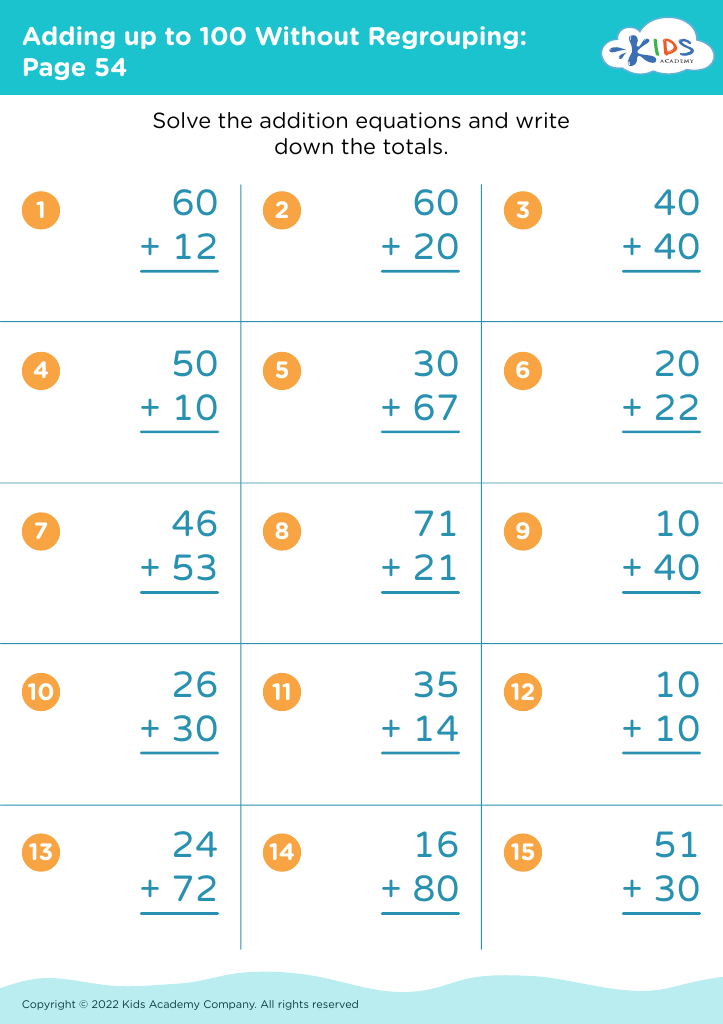Fraction conversion Addition Worksheets for Ages 3-8
3 filtered results
-
From - To
Introduce your young learners to the world of fractions with our engaging Fraction Conversion Addition Worksheets! Perfect for ages 3-8, these worksheets are designed to build foundational math skills while keeping children intrigued with colorful illustrations and fun activities. Kids will learn how to add fractional values through easy-to-follow exercises that promote critical thinking and problem-solving. Our user-friendly format and clear instructions make it simple for parents and educators to assist children in navigating the concepts of fraction conversion. Strengthen your child's mathematical abilities today, ensuring they gain confidence and competence in no time! Download your worksheets now!
Understanding fraction conversion and addition is crucial for children ages 3-8 as it lays a strong foundation for their overall mathematical skills. At this formative age, children are naturally curious and keen to explore the relationships between shapes and numbers. Introducing them to fractions helps develop critical thinking and problem-solving abilities, allowing kids to see the connections between whole numbers and parts.
For parents and teachers, grasping the concept of fraction conversion and addition means nurturing a child's numerical literacy, which is essential not just in mathematics but in everyday life. Fractions are everywhere—from cooking to sharing and even in understanding time. By emphasizing this area early on, we equip children with the tools they need for more complex math tasks in later grades, making future learning less daunting.
Moreover, teaching fractions at a young age can enhance fine motor skills through hands-on activities like measuring ingredients or creating visual fraction charts. This also promotes a growth mindset, as children learn that making mistakes is part of the learning process. Fostering these skills early on encourages a lifelong love for mathematics, essential for their academic and personal development. Thus, parents and teachers play a pivotal role in delivering these fundamental concepts.




















